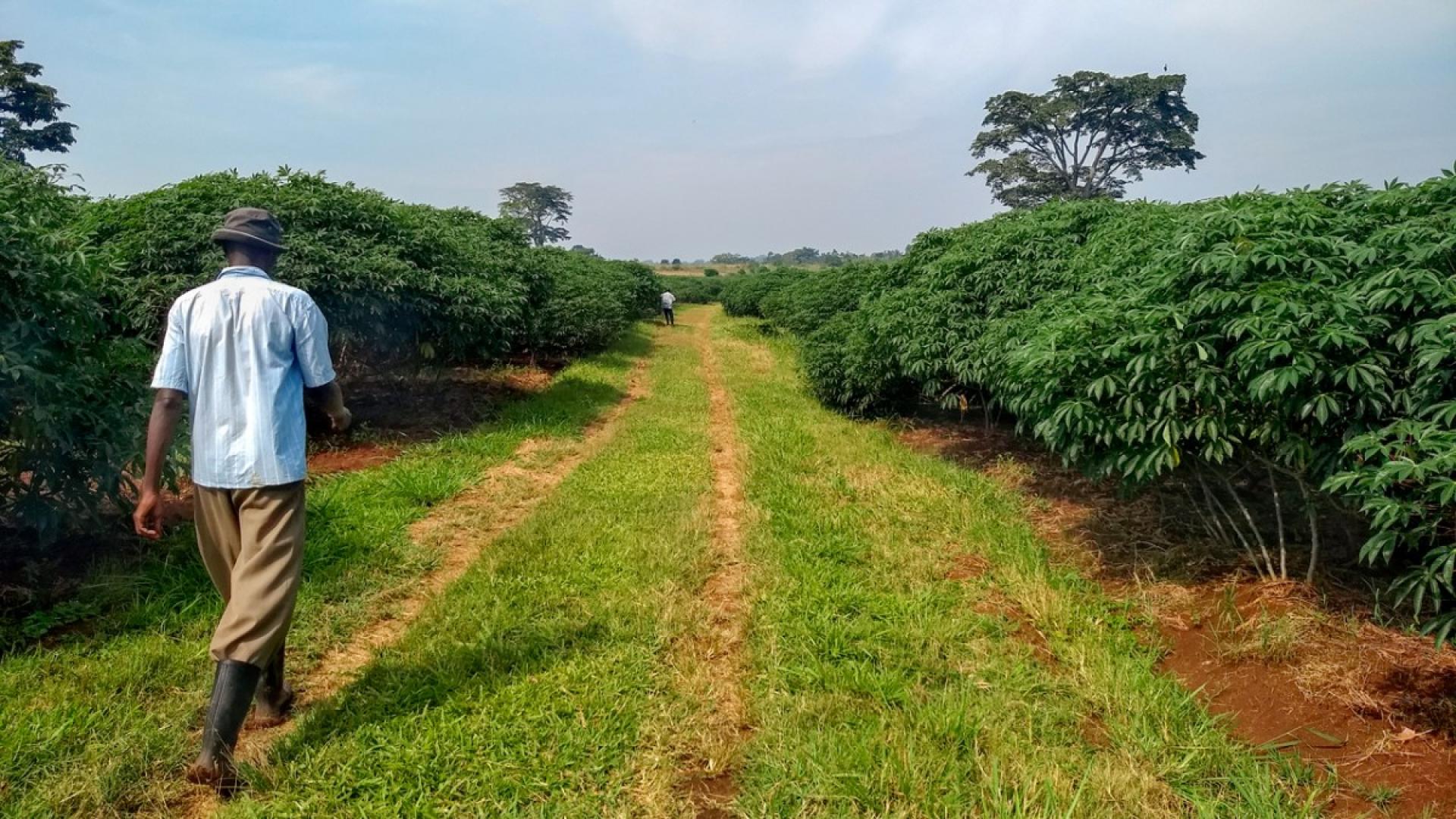The Next Generation Cassava Breeding Project (NextGen Cassava) is blending advanced breeding technologies with equally sophisticated approaches to gathering market intelligence to serve a single purpose: meeting the everyday needs of millions of Africans growing, processing, cooking and eating cassava—the continent’s second most important food crop.
In 10 years, NextGen experts have radically transformed cassava breeding practices across sub-Saharan Africa and beyond. Their methods now serve as a model for other crops, as their approach works faster and smarter to produce better varieties.
- Development and deployment of five advanced cassava varieties in record time: NextGen embraced an array of breeding innovations to reduce the time previously required to complete a breeding cycle from ten to just two years, allowing new varieties to be developed more rapidly. NextGen varieties include cassava that offers better yields and stronger disease resistance, along with traits farmers, consumers and food commercial buyers prefer, like enhanced cooking and processing qualities.
- Cultivating a new digital ecosystem for cassava breeders: NextGen has developed a global repository of cassava intelligence with CassavaBase. This open-access, online platform now hosts 1,200+ users. With CassavaBase, scientists across the globe can explore the results of 2,700 cassava breeding trials and probe the many aspects of cassava’s genetic diversity through a database that has catalogued some 11.2 million cassava genetic data points. For the first time ever, it’s possible to compare trial results and trait performances across cassava breeding programs.
- Energizing cassava work in national programs: NextGen and its CGIAR partners have collaborated with National Agricultural Research Systems (NARS) in Nigeria, Uganda and Tanzania and embedded with others via community of practice (CoP) partnerships. Through this work, NextGen is supporting the teams, technologies, processes and practices that make advanced crop breeding accessible to low- and middle-income countries. For example, the CoP partnerships are elevating cassava improvement in Côte d’Ivoire, the Democratic Republic of Congo, Ghana, Kenya, Mozambique, Sierra Leone and Zambia.
- Re-imagining the crop improvement community: NextGen is expanding the community of experts involved in crop breeding to include social scientists, data scientists, food scientists and gender experts— and giving everyone’s input equal value. For example, NextGen has deployed advanced tools for generating and analyzing data from multiple sources to develop sophisticated customer profiles of cassava farmers. This market intelligence has revealed a surprising diversity of trait preferences -- between men and women and across different regions, as well as among households with different levels of income and food security.
NextGen has employed a powerful assortment of advanced breeding tools to efficiently produce new, elite varieties of cassava that provide higher yields, superior disease resistance and preferred end-user characteristics. They are now growing in farmers’ fields across the continent where the cassava they generate is easier to process and cook, a big plus for a continent where cassava is equally loved in households rich and poor.
“For farmers and consumers across Africa, cassava is a popular, hardy, naturally climate-smart food crop that has been perennially long on potential but short on investment. Through the work of NextGen, cassava’s moment has arrived—and at a time when its many attributes are urgently needed.” -Ronnie Coffman, principal investigator for NextGen and professor emeritus at Cornell University's School of Integrative Plant Science in the College of Agriculture and Life Sciences.
Equally important is the potential role of NextGen Cassava varieties for opening up commercial opportunities for smallholder cassava producers by meeting both food demands and a growing assortment of non-food uses, which include ethanol, cardboard, pharmaceuticals and adhesives. For decades, a lack of good planting materials that reliably generate ample harvests of high-quality cassava has made it difficult for African farmers to earn income from this crop.
The cassava developed by NextGen was met with high demand from local farmers because the project has combined cutting-edge breeding tools with new approaches to illuminating farmer preferences. These insights revealed distinctly different cassava preferences based on region, gender and economic status. With this seamless mix of crop science with social science, and of genomic intelligence with market intelligence, NextGen is providing a new model for successful crop improvement programs targeting smallholder producers in low-income countries.
NextGen’s achievements to date are just a preview of its future success. Its advances in cassava breeding and market intelligence are now being extended across the continent via community of practice partnerships with national crop breeding programs. And it’s attracting international collaborations with partners in Thailand, Cambodia, South America and the Pacific Islands.
“In a world facing new challenges to food security from climate change, it’s critical to maintain and extend this cohesive and uniquely effective initiative that is finally giving cassava the attention it deserves," said Coffman.






